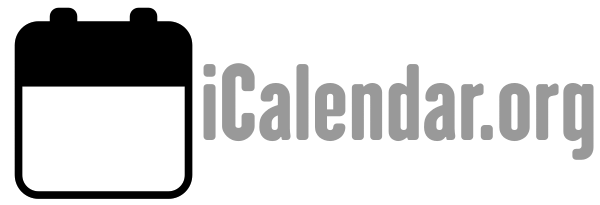This specification creates additional Preconditions for PUT, COPY, and MOVE methods. These preconditions apply when a PUT operation of a calendar object resource into a calendar collection occurs, or when a COPY or MOVE operation of a calendar object resource into a calendar collection occurs, or when a COPY or MOVE operation occurs on a calendar collection.
The new preconditions are:
(CALDAV
supported-calendar-data) PUT request, or targeted by a COPY or MOVE request, MUST be a supported media type (i.e., iCalendar) for calendar object resources;
(CALDAV
valid-calendar-data) request, or targeted by a COPY or MOVE request, MUST be valid data for the media type being specified (i.e., MUST contain valid iCalendar data);
(CALDAV
valid-calendar-object-resource) the PUT request, or targeted by a COPY or MOVE request, MUST obey all restrictions specified in Section 4.1 (e.g., calendar object resources MUST NOT contain more than one type of calendar component, calendar object resources MUST NOT specify the iCalendar METHOD property, etc.);
(CALDAV
supported-calendar-component) the PUT request, or targeted by a COPY or MOVE request, MUST contain a type of calendar component that is supported in the targeted calendar collection;
(CALDAV
no-uid-conflict) request, or targeted by a COPY or MOVE request, MUST NOT specify an iCalendar UID property value already in use in the targeted calendar collection or overwrite an existing calendar object resource with one that has a different UID property value. Servers SHOULD report the URL of the resource that is already making use of the same UID property value in the DAV:href element;
(CALDAV
calendar-collection-location-ok) request, when the Request-URI is a calendar collection, the Destination-URI MUST identify a location where a calendar collection can be created;
(CALDAV
max-resource-size) request, or targeted by a COPY or MOVE request, MUST have an octet size less than or equal to the value of the CALDAV:max-resource- size property value (Section 5.2.5) on the calendar collection where the resource will be stored;
(CALDAV
min-date-time) or targeted by a COPY or MOVE request, MUST have all of its iCalendar DATE or DATE-TIME property values (for each recurring instance) greater than or equal to the value of the CALDAV:min- date-time property value (Section 5.2.6) on the calendar collection where the resource will be stored;
(CALDAV
max-date-time) or targeted by a COPY or MOVE request, MUST have all of its iCalendar DATE or DATE-TIME property values (for each recurring instance) less than the value of the CALDAV:max-date-time property value (Section 5.2.7) on the calendar collection where the resource will be stored;
(CALDAV
max-instances) or targeted by a COPY or MOVE request, MUST generate a number of recurring instances less than or equal to the value of the CALDAV: max-instances property value (Section 5.2.8) on the calendar collection where the resource will be stored;
(CALDAV
max-attendees-per-instance) PUT request, or targeted by a COPY or MOVE request, MUST have a number of ATTENDEE properties on any one instance less than or equal to the value of the CALDAV:max-attendees-per-instance property value (Section 5.2.9) on the calendar collection where the resource will be stored;
